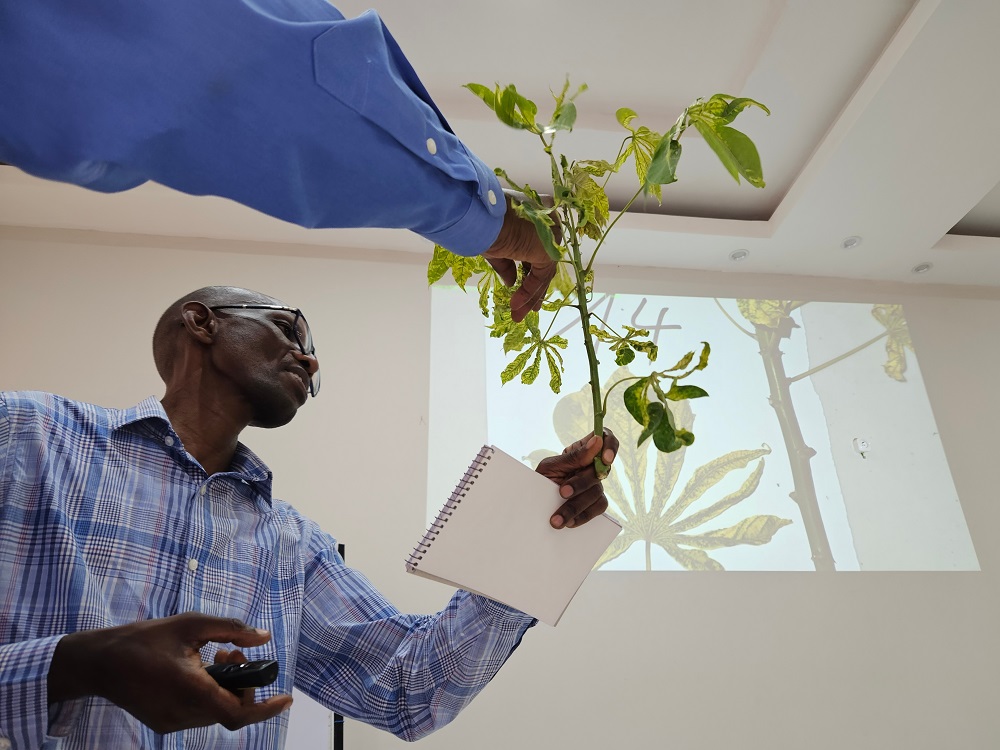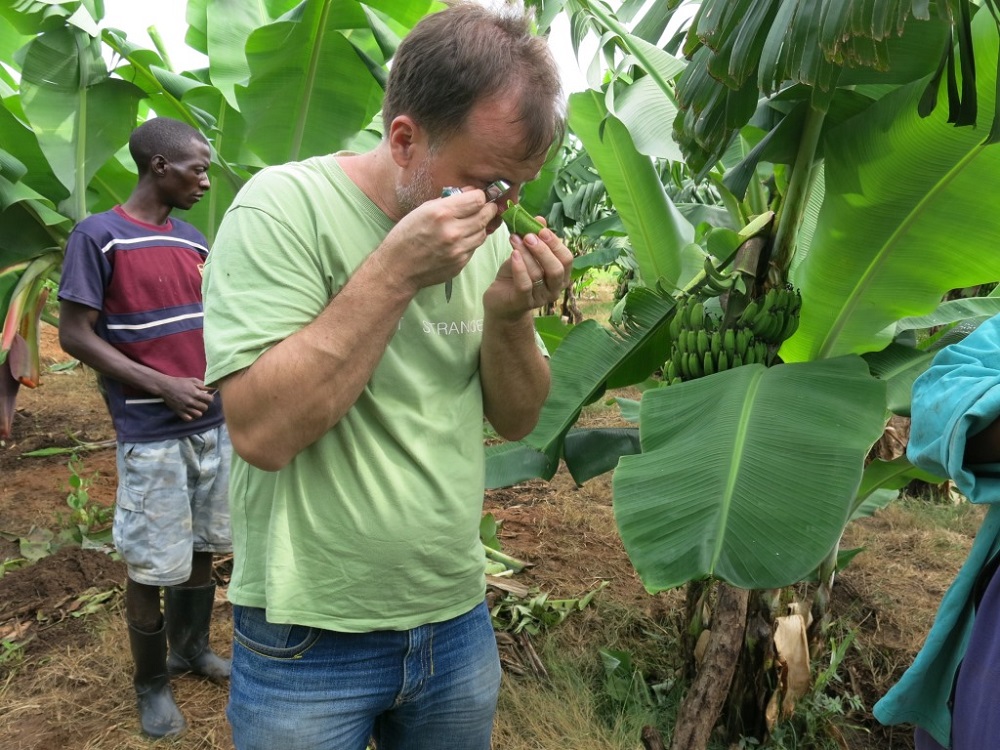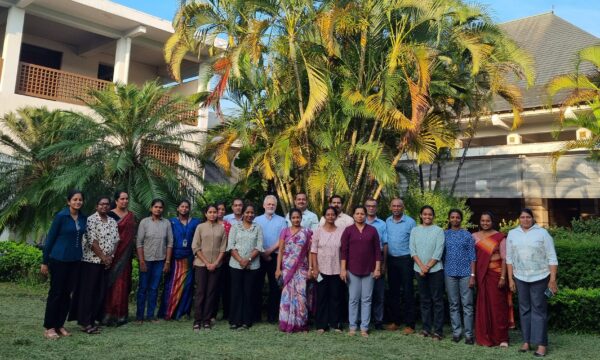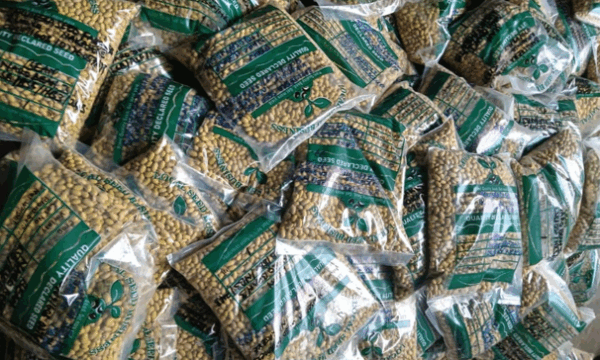
Many smallholder farmers around the world rely on good agricultural extension services to successfully grow their crops. Correct field diagnoses of plant health problems are an essential starting point, writes Dr Stefan Toepfer and co-authors.
However, some agricultural extension workers may have had limited capacity building in field diagnosis during their agricultural education, and many may have had limited or no continuing education possibilities during their advisory work life.
Increase rural livelihoods and food security
The aim of CABI’s work in Burundi is to improve rural livelihoods and food security. This is achieved by establishing sustainable networks of local plant clinics, run by trained plant doctors, where farmers receive practical plant health advice which supports them to grow more and lose less to crop pests and diseases.
CABI provides short and inexpensive in-service training courses for agricultural extension practitioners that are intended to improve the quality of field diagnosis and management of plant health problems. Upon successful completion, those certified plant doctors then establish a plant clinic in places easily accessible to a maximum number of farmers.
Until recently though, it had not been proven how much these short in-service trainings would indeed improve the skills and capacities of extension practitioners, such as plant doctors.
New study proves knowledge and skills increase
A new study, published in the journal Sustainability and led by Dr Stefan Toepfer, (Integrated Crop Management Advisor at CABI Switzerland), CABI colleagues and Burundian experts, revealed such courses can increase knowledge and skills in field diagnosis of plant health issues.

The researchers – using empirical data from before-versus-end and after-course analysis – revealed that the courses increase knowledge and skills in field diagnosis by around 20 percentage points during the training. And, more importantly, a near 10% improve can still be detected eight to 19 months after training.
Positively, CABI has also been showing that better diagnosis of plant health problems leads to better pest management advice and, subsequently, better pest management on a farm. This improves crop production and rural livelihoods and reduces risks to farmers, consumers, and the environment.
Repeated in-service training may be beneficial
The results suggest that repeated in-service training for agricultural practitioners may be beneficial. Investments in such training seem worthwhile, the scientists say, since better diagnosis can lead to more appropriate pest management advice and judicious use of pesticides.
Dr Toepfer, who is one of CABI’s master trainers, said, “It is impressive that adult education, can, even if provided as a rather short in-service training, can led to sustainable improvement of skills of the participants involved. This is encouraging and calls for more regular trainings.”
The study was conducted in Burundi and financed by Nuffic – the Dutch organisation for internationalisation in education – and the Embassy of the Netherlands in Burundi.
Additional information
Main image: A national trainer delivers training on pest diagnosis to local extension workers of Burundi (Credit: S. Toepfer).
Full paper reference
Read the full publication
Toepfer S, Niyongere C, Ndayihanzamaso P, Ndikumana D, Irakoze W, Cimpaye E, Minani D, Bindariye P, Ochilo W. (2023) Sustainable Improvements in Diagnostic Capabilities of Plant Health Practitioners through Short In-Service Training. Sustainability.; 15(17):12956. DOI: 10.3390/su151712956
You can read the paper in full open access here: https://www.mdpi.com/2071-1050/15/17/12956
Funding acknowledgement
This study was primarily supported by The Dutch Organization for Internationalization in Education (NUFFIC) (grant number OKP-TMT + .20/00062), partly by Embassy of the Kingdom of the Netherlands in Bujumbura, Burundi (EKN) (contract number 4000004168), and in-kind by the Institut des Sciences Agronomiques du Burundi (ISABU) and the Plant Protection Institute DPV of MINEAGRIE of Burundi as part of the Plantwise programme.
Other relevant stories
Empowering farmers in Burundi through Plantwise plant health rallies
Empowering Nepalese students with CABI digital platforms: Exploring the PlantwisePlus Toolkit
Training Kenya’s young farmers and women to help ensure greater food security
Relevant books
Related News & Blogs
CABI Academy supports Vietnamese universities in training the next generation of plant health professionals
Plant health lies at the centre of food security and sustainable agriculture. In Vietnam, as in many countries, preparing the next generation of plant specialists with the latest knowledge and practical skills is essential to achieving this goal. Under…
7 July 2025




